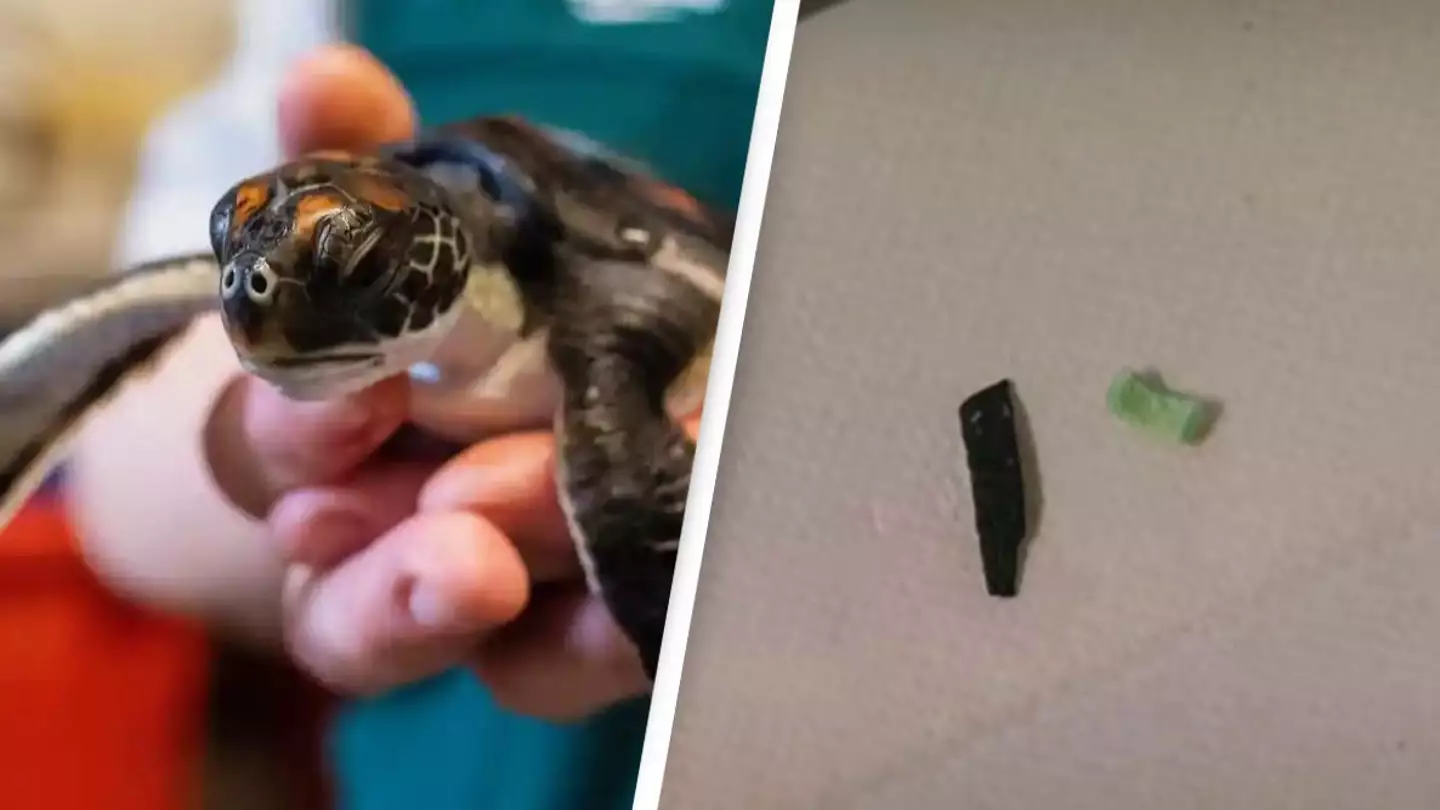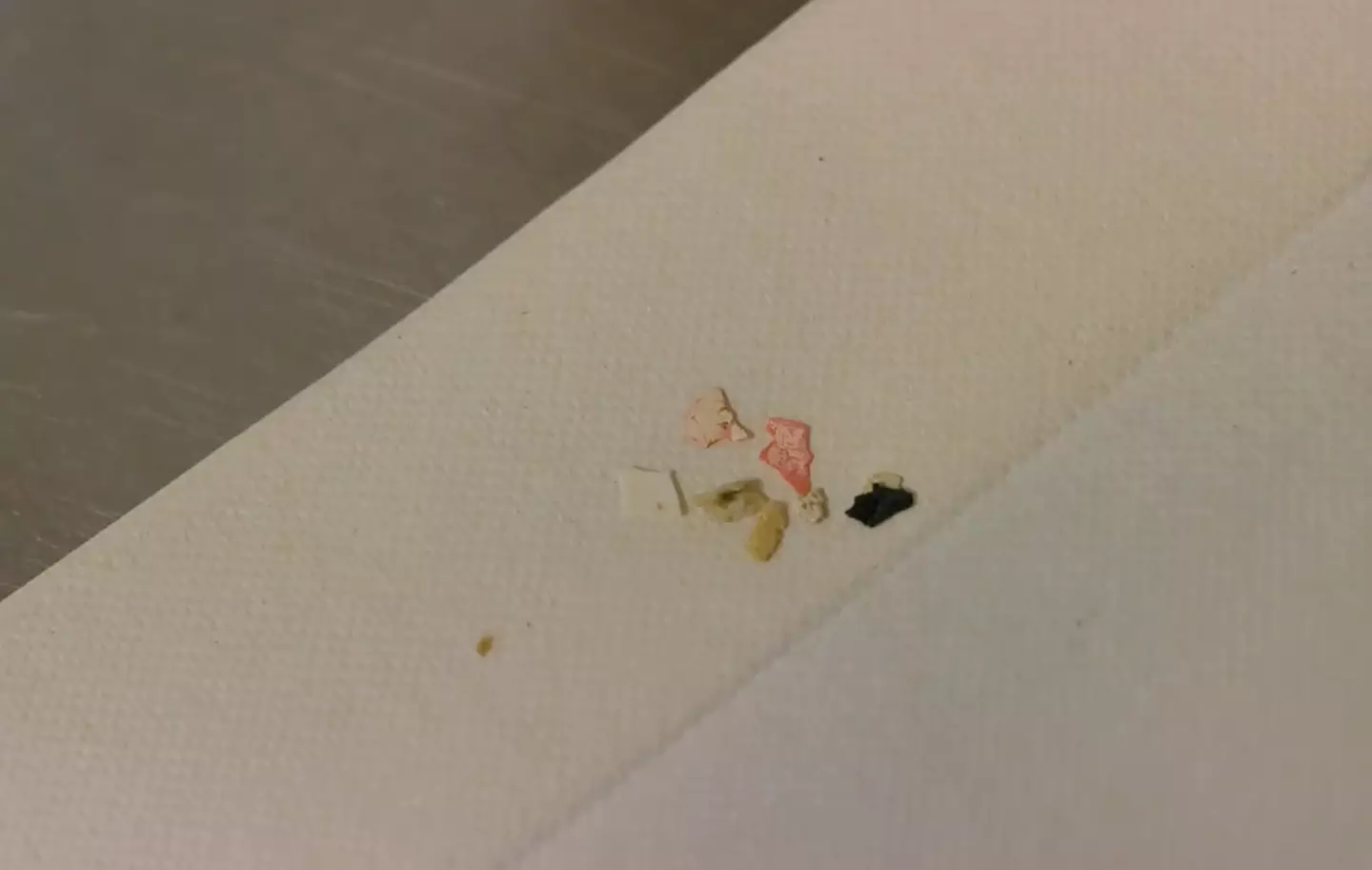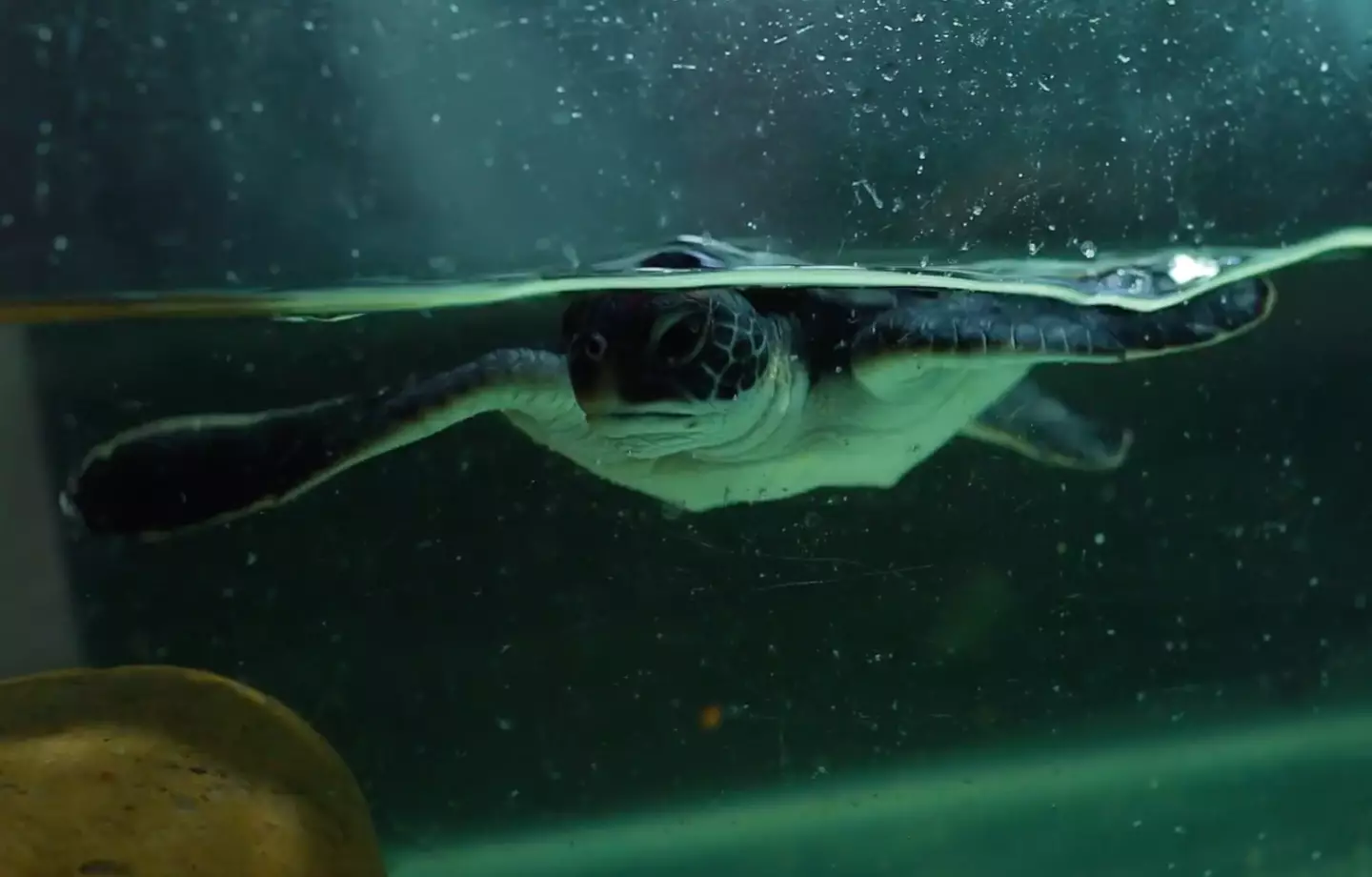
A baby turtle rescued in Australia was found to have eaten that much plastic, it was pooing it out for six days.
The baby green turtle, which weighed just 127 grams, was rescued by Taronga Zoo, based in Sydney, New South Wales, and carers at the zoo's wildlife hospital were stunned by what they were soon to see.
The baby was found lying on its back in a rockpool near Sydney’s Tamarama beach, missing one of its four flippers – one of which had a chip in it – and had a hole in its shell which is believed to have come from some kind of predator.
But the most shocking finding was how much plastic the turtle had eaten.
Advert
Have a look below:
While the carers have full faith the baby turtle will go on to recover and grow to be strong and healthy, they were concerned when it spent six days 'defecating plastic'.
"So, for a little turtle this size, every single day no feces came out, just pure plastic," Taronga veterinary nurse Sarah Male explained in a video the zoo released.
"We do have all of the plastic... we've collected it and counted how many days and we came up with six tiny vials full of all different sizes of plastics," she added.
"It was all different sizes, colours and compositions. Some were hard, some were sharp, and with some, you could tell the plastic had writing on it.

"This is all some of these poor little things are eating. There’s so much plastic around they’re just consuming it as their first initial food."
Male then said: "This guy, I would say, was lucky because some of the plastic that did come out was really hard so that could have caused an obstruction. This guy... just say luck was on his side!"
Despite the turtle's remarkable progress since the plastic left its system, it could be an entire year until it is released back into the wild and coastal waters.
Sadly, this is no unusual case for Taronga's Wildlife Hospital as it cares for up to 80 marine turtles every year, many of which are admitted with severe injuries caused by entanglement in fishing lines and crab pots, as well as hook and plastic ingestion.
“If everybody just takes a little bit of their time to pick up a bit of rubbish – it doesn’t have to be on the beach – then hopefully we can make a difference,” Male said.

While plastic polluting the oceans remains a vast problem, small change is being made – and the New South Wales Plastics Action plan is contributing to this much needed change.
The NSW state generates 800,000 tonnes of plastics every year, with only 10 percent being recycled.
The plan aims to combat this by putting in a series of restrictions and law changes, such as single-use plastics being banned, reduce plastic waste and support plastics research in a bid to be more sustainable and environmentally-friendly.
If you have a story you want to tell, send it to UNILAD via [email protected]
Topics: Animals, Environment